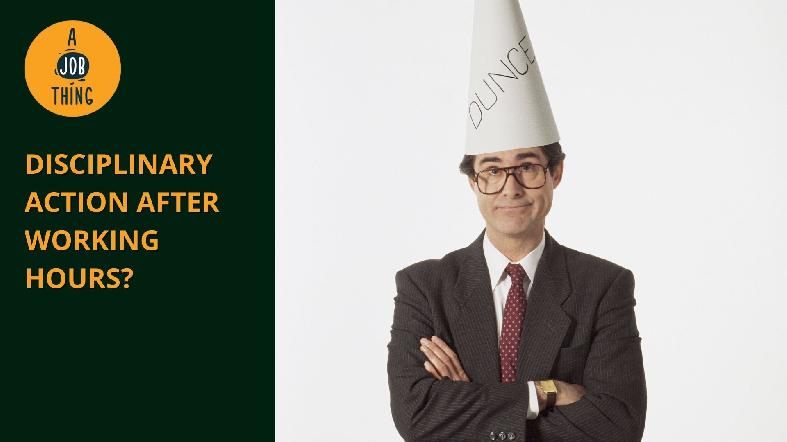
How Employers Should Handle Misconduct After Work Hours
Are You Hiring?
Find candidates in 72 Hours with 5+ million talents in Maukerja Malaysia & Ricebowl using Job Ads.
Hire NowAn employer has the right to penalise an employee for any misconduct, both in and out of the workplace.
However, there is a limit. Most companies will only take such disciplinary action if the employee's actions are detrimental to the company's interests or are criminal in nature.
Protecting the company's interest
If an employee's professional performance is consistently affected by their domestic issues, the company may take action against him.
Otherwise, as Datuk Dr Syed Hussain Syed Husman, Malaysian Employers Federation president said, such activities will be viewed as a private or domestic matter.
He was responding to a report of a man who was fired from his job as a deputy manager after a video of him beating up his wife went viral in Xi'an, China. While the wife attempts to protect her child, the father hits her in the head.
Later, his employer posted on social media that he was fired from his deputy manager job.
According to Syed Hussain, the distinction in Malaysia is quite apparent. He said the employer can and will take action against an employee who moonlights or is involved in criminal activities or drug misuse outside of the office.
He explained that this is required to defend the company's interests and other employees' safety and health.
He added that even when it occurs outside of working hours, a worker's behaviour has an impact on the employer's image. Any unethical behaviour on the employee's side can harm the employer's and his company's reputation.
Employers must know the line
On the other hand, employers do not have the authority to intervene in a family dispute, according to him.
While disciplinary action is a management prerogative, he pointed out that it can become a topic of contention if it is demonstrated that the employer acted in bad faith, engaged in unfair labour practises, or violated the concept of natural justice.
He stated that the management's choice should thus be founded on good cause and excuse rather than being arbitrary or perverse. He also said that the employee must be given every opportunity to defend himself to avoid the risk of unjust action by the employer.
Acting president of the Malaysian Trades Union Congress, Mohd Effendy Abdul Ghani, stated that employee behaviour at work impacts business operations and, by extension, success or failure.
He said that professional behaviours produce collaborative work efforts and raise the company's status. On the other hand, unprofessional or bad behaviour might hinder productivity, lower morale, and harm the company's public image.
However, suppose an employee's negative attitude or personal behavioural problems aren't brought into the office and don't influence his performance. In that case, the company has no right to blame the employee for the company's image problem.
Employers must also follow the proper procedures
Mohd Effendy further pointed out that proper procedures must be followed if the employee is to be fired.
He explained that if an employee believes they were fired unfairly, they have 60 days to file a complaint with the appropriate authority. Any employee can file a complaint, regardless of their rank, pay, or nationality.
According to Effendy, employees who have been wronged can also file complaints at the MTUC Workers Service Centre. He believes that companies should pay attention to their employees' well-being at work because excessive stress levels hurt productivity.
Careful preparation and empathy in dealing with employees whose personal difficulties affect their professional performance are valuable skills that companies should have in their toolboxes.
According to labour expert Xenia Z. C. Lok, employers can intervene as far as mutually agreed upon in their employment agreement or contract with the employee. She noted that an employee handbook, code of conduct, or code of ethics could also be helpful.
Source: TheSun

